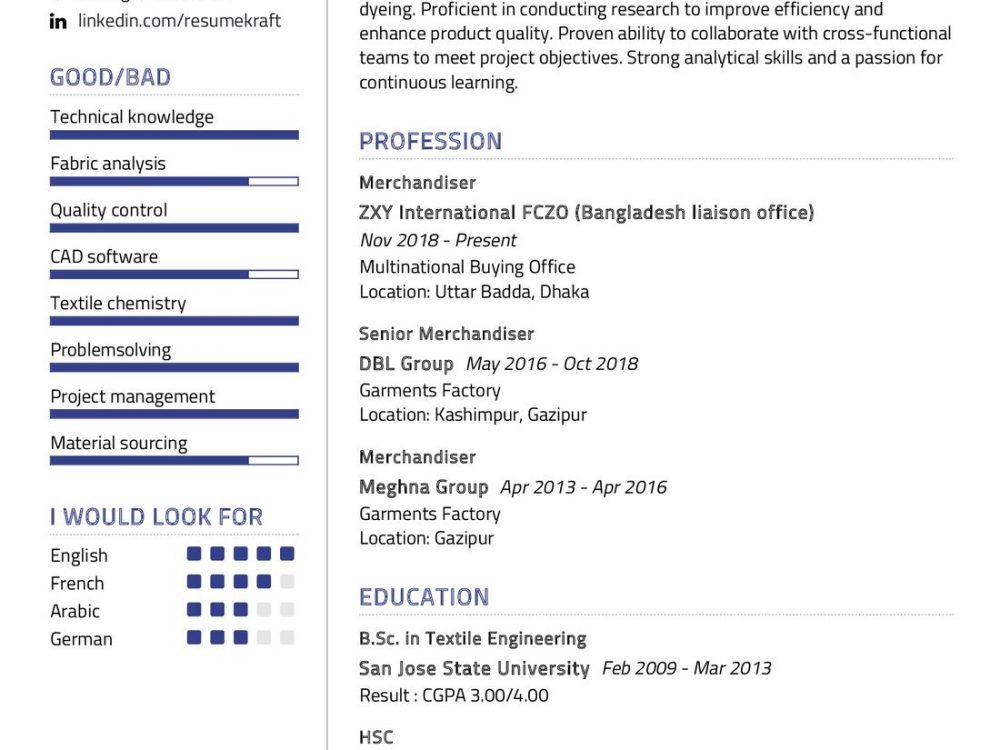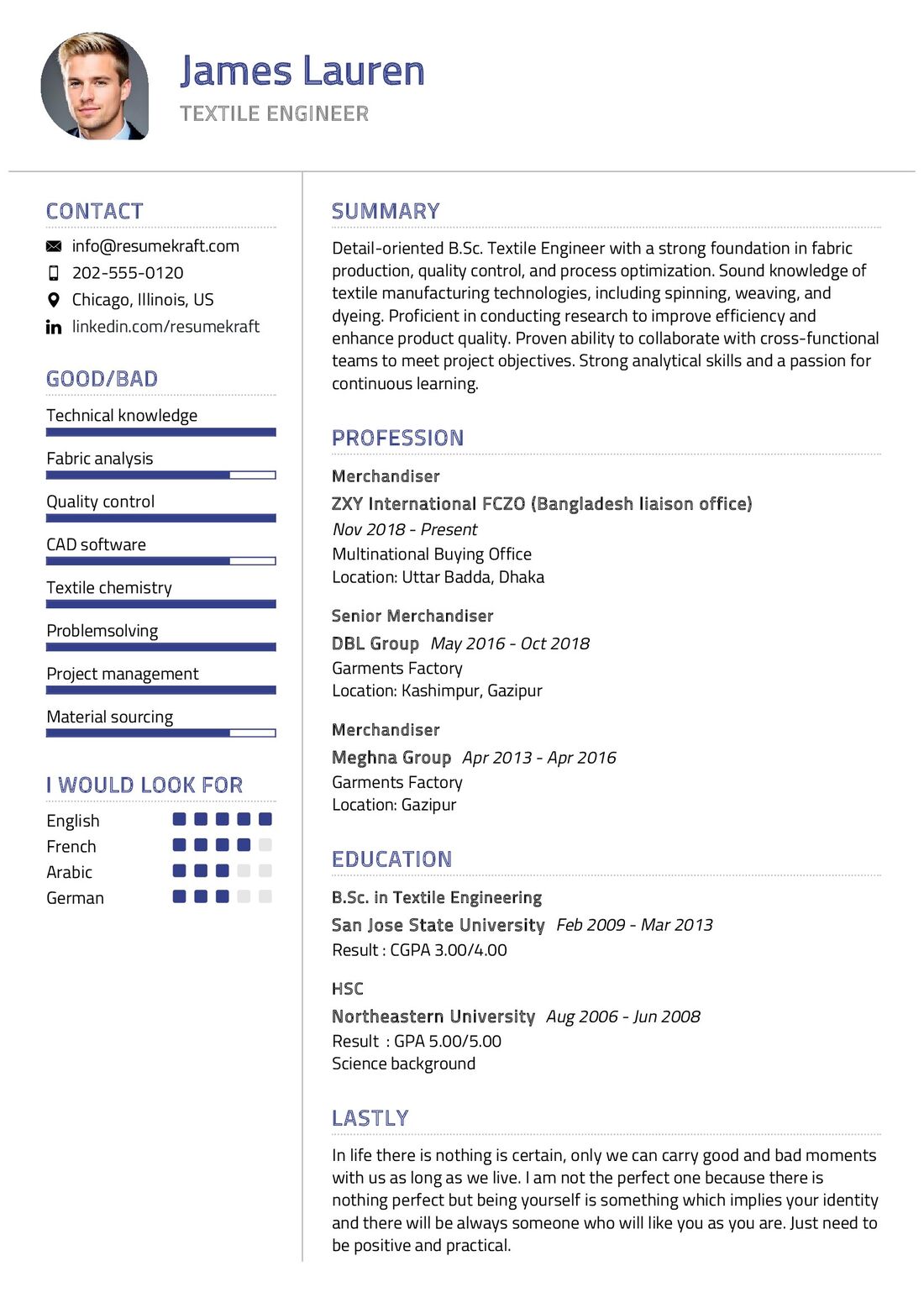What is the Role of a Textile Engineer?
In the vibrant and ever-evolving world of fashion and textiles, the role of a Textile Engineer is pivotal. This role is a beautiful amalgamation of creativity and technical prowess, where one is tasked with the responsibility of developing fabrics and textile products that are both aesthetically pleasing and functionally sound. Let’s delve deeper into the role of a Textile Engineer, a profession that stands at the intersection of art and science.
Textile Engineers work in a variety of settings including manufacturing units, textile mills, and fashion houses, where they apply their knowledge of textile properties and behaviors to create innovative products. They are involved in the entire production process, from selecting the right materials to developing manufacturing processes, ensuring quality control, and even working on marketing strategies for textile products. Their role is dynamic, requiring a deep understanding of textiles coupled with a keen eye for detail and a creative mind.
What are the Textile Engineer Job Requirements?
Embarking on a career as a Textile Engineer involves meeting a series of requirements that ensure you are well-equipped to handle the demands of this dynamic role. Let’s explore the essential prerequisites for aspiring Textile Engineers:
- A Bachelor’s or Master’s degree in Textile Engineering, Material Science, or a related field, laying a solid foundation in the technical aspects of textiles.
- Hands-on experience in textile production, showcasing a practical understanding of the manufacturing processes.
- A keen eye for detail, developed through training and experience, enabling you to identify and rectify issues in textile products.
- Proficiency in using various textile machinery and tools, a skill that is vital in the production process.
- Understanding of textile chemistry, a knowledge base that allows you to work on developing new materials and products.
- Excellent communication skills, facilitating effective collaboration with team members and other stakeholders.
Additional certifications and courses in textile design and production can further enhance your profile, showcasing a commitment to continuous learning and expertise in the field.
What are the Responsibilities of a Textile Engineer?
The role of a Textile Engineer is multifaceted, encompassing a wide range of responsibilities that require both technical knowledge and creative skills. Let’s unravel the diverse responsibilities that define this role:
- Developing new materials and fabrics, a task that demands innovation and a deep understanding of textile properties.
- Overseeing the production process, ensuring that the manufacturing units operate efficiently and produce high-quality products.
- Working on quality control, a critical role that involves inspecting products to ensure they meet the required standards.
- Collaborating with designers and other professionals to create products that are both functional and aesthetically pleasing.
- Researching and implementing sustainable practices in textile production, a responsibility that showcases your commitment to environmental conservation.
- Advising on the selection of fabrics and materials, a role that leverages your expertise in textile properties and behaviors.
Each responsibility is a testament to the diverse skill set required in this role, showcasing a blend of technical knowledge and creative vision.
Textile Engineer Resume Writing Tips
Creating a resume that stands out in the competitive job market is a critical step in your career journey. Here are some tips to help you craft a resume that showcases your strengths and achievements as a Textile Engineer:
- Highlight your educational background, showcasing the knowledge base that you bring to the role.
- Detail your experience in textile production, providing examples of projects you have worked on and the results achieved.
- Include a section on certifications and courses, showcasing your commitment to continuous learning.
- Highlight your skills in textile chemistry and machinery, showcasing your technical prowess in the field.
- Provide examples of your creative skills, showcasing your ability to develop innovative products.
Each tip is a stepping stone towards creating a resume that reflects your expertise and passion for the textile industry.
Textile Engineer Resume Summary Examples
Your resume summary is a concise representation of your career journey, offering a snapshot of your experiences, skills, and the value you bring to the role. Here are some examples to inspire you:
- “Experienced Textile Engineer with a background in sustainable fabric development, bringing innovation and environmental consciousness to textile production.”
- “Detail-oriented Textile Engineer with a proven track record in improving manufacturing processes, enhancing efficiency, and ensuring product quality.”
- “Creative Textile Engineer with a passion for developing new materials, leveraging a deep understanding of textile properties to create innovative products.”
Each summary offers a glimpse into your career, showcasing your strengths
and the unique perspective you bring to the role.
Create a Strong Experience Section for Your Textile Engineer Resume
Your experience section is the heart of your resume, offering a detailed account of your career journey. Here are some tips to help you create a strong experience section:
- Detail your role in developing new materials and products, showcasing your innovative approach.
- Highlight your experience in overseeing production processes, showcasing your managerial skills.
- Provide examples of your work in quality control, showcasing your attention to detail and commitment to excellence.
- Detail your collaborations with designers and other professionals, showcasing your ability to work in a team and contribute to creative projects.
Each point in your experience section is a chapter in your career story, showcasing your journey in the vibrant world of textiles.
Sample Education Section for Your Textile Engineer Resume
Your educational background forms the foundation of your career, offering a glimpse into the knowledge base that you bring to the role. Here is a sample education section to inspire you:
- Bachelor of Science in Textile Engineering, XYZ University, 2015
- Certification in Sustainable Textile Production, ABC Institute, 2018
- Master of Science in Material Science, DEF University, 2020
Each educational credential is a testament to your knowledge and expertise in the field of textiles.
Textile Engineer Skills for Your Resume
Your skills section is a showcase of your abilities, both technical and creative. Let’s explore the skills that are essential for a Textile Engineer:
Soft Skills:
- Creative vision, the ability to envision and develop innovative products.
- Attention to detail, a critical skill in ensuring product quality.
- Team collaboration, the ability to work effectively with others to achieve common goals.
- Problem-solving abilities, a skill that enables you to find solutions in challenging situations.
- Communication skills, the ability to convey your ideas effectively and work collaboratively with others.
Hard Skills:
- Textile chemistry, a deep understanding of the properties and behaviors of different textiles.
- Knowledge of textile machinery, a skill that is vital in the production process.
- Understanding of sustainable practices in textile production, a knowledge base that showcases your commitment to environmental conservation.
- Proficiency in textile design software, a skill that enables you to work on innovative designs and products.
- Quality control, a skill that ensures the products meet the required standards.
Each skill is a tool in your toolkit, aiding you in your role as a Textile Engineer.
Most Common Mistakes to Avoid When Writing a Textile Engineer Resume
As you craft your resume, it is essential to avoid common mistakes that can hinder your chances of landing your dream job. Let’s explore the pitfalls to avoid:
- Using a generic template, a strategy that fails to showcase your unique fit for the role.
- Ignoring the cover letter, a missed opportunity to narrate your story and connect with potential employers.
- Overloading your resume with technical jargon, a strategy that can obscure your true value.
- Failing to proofread, a mistake that can leave a dent in your professional image.
Each mistake is a pitfall, avoid them to craft a resume that is both authentic and compelling.
Key Takeaways for Your Textile Engineer Resume
As we reach the end of this comprehensive guide, let’s recap the key points to keep in mind while crafting your Textile Engineer resume:
- Emphasize your educational background, showcasing the knowledge base that you bring to the role.
- Detail your experience in textile production, providing examples of projects you have worked on and the results achieved.
- Highlight your skills in textile chemistry and machinery, showcasing your technical prowess in the field.
- Provide examples of your creative skills, showcasing your ability to develop innovative products.
Finally, feel free to utilize resources like AI Resume Builder, Resume Design, Resume Samples, Resume Examples, Resume Skills, Resume Help, Resume Synonyms, and Job Responsibilities to create a standout application and prepare for the Textile Engineer job interview.
With this rich tapestry of insights and tips, you are now ready to weave your career story into a resume that reflects your journey, your skills, and your aspirations. Remember, your resume is not just a document; it is a canvas where you paint your career story, a story of growth, learning, and innovation. Best of luck!


